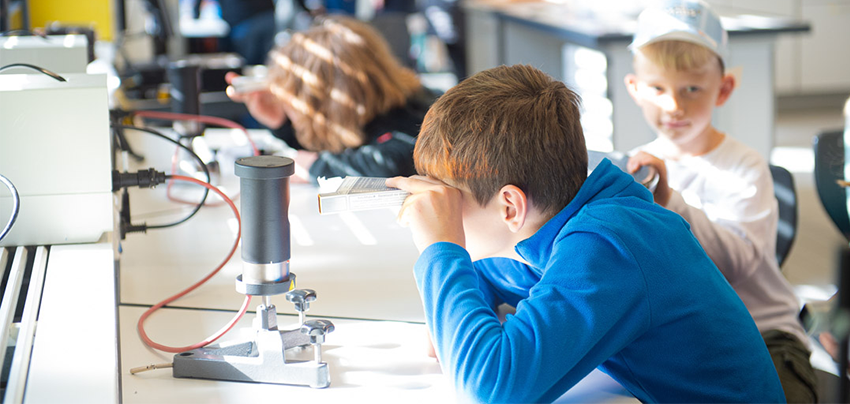Why is the sky blue? What is actually a star? How does a rocket work? On October 3, 70 young researchers, who are just as interested in the big and small questions of our universe as we are, explored these questions with us. The "Doors open with the mouse" event takes place every year on the Day of German Unity and gives mouse fans a whole new insight: companies, authorities, institutions, research centers and cultural facilities open their doors and show what, what and how they work on. This October, the Faculty of Physics and Astronomy took part for the eighth time. This year's theme: Doing it together. How the smallest elementary particles come together to form high-tech materials or entire galaxies is one of the central questions that our researchers are working on. To this end, we bring together experts from different areas of physics in order to understand nature in its entirety. The best conditions, therefore, to give an insight into the work of our faculty under this motto.
Little and big mouse fans, even greater joy of experimentation
Young mouse fans (and their parents) were invited to discover the world of physics with us. Our 3 to 16-year-old visitors were divided into groups according to age, with whom they went on a discovery and experimentation tour throughout the day: The younger ones made star charts, sent rockets into the sky with an effervescent engine or conjured up delicious ice cream in a matter of seconds and without the need for a freezer. Older visitors were able to discover the secret rainbow colors of light, for example, or try out how to gild objects with the help of plasmas. For all those who were interested in more physics in addition to these exciting workshops, there was also the hands-on station "Physics in the home". Here you could get to the bottom of physical phenomena using simple materials that probably everyone has at home.
Get a taste of university in the lecture hall
Our guests were given further insights into university life in a lecture especially for them, including a whirlwind in a glass box, balloons that fly without helium, a few other illustrative experiments and input from a mouse, duck and elephant in the form of video clips. "I found it super exciting!" was how one young guest summed it up. Our visitors were well looked after by the physics student council, who served coffee, juice and delicious cake. We would like to thank everyone who helped - the student council, cake donors, lecture hall team, workshop and group leaders - and are already looking forward to Mouse Day 2025.
To the picture gallery


